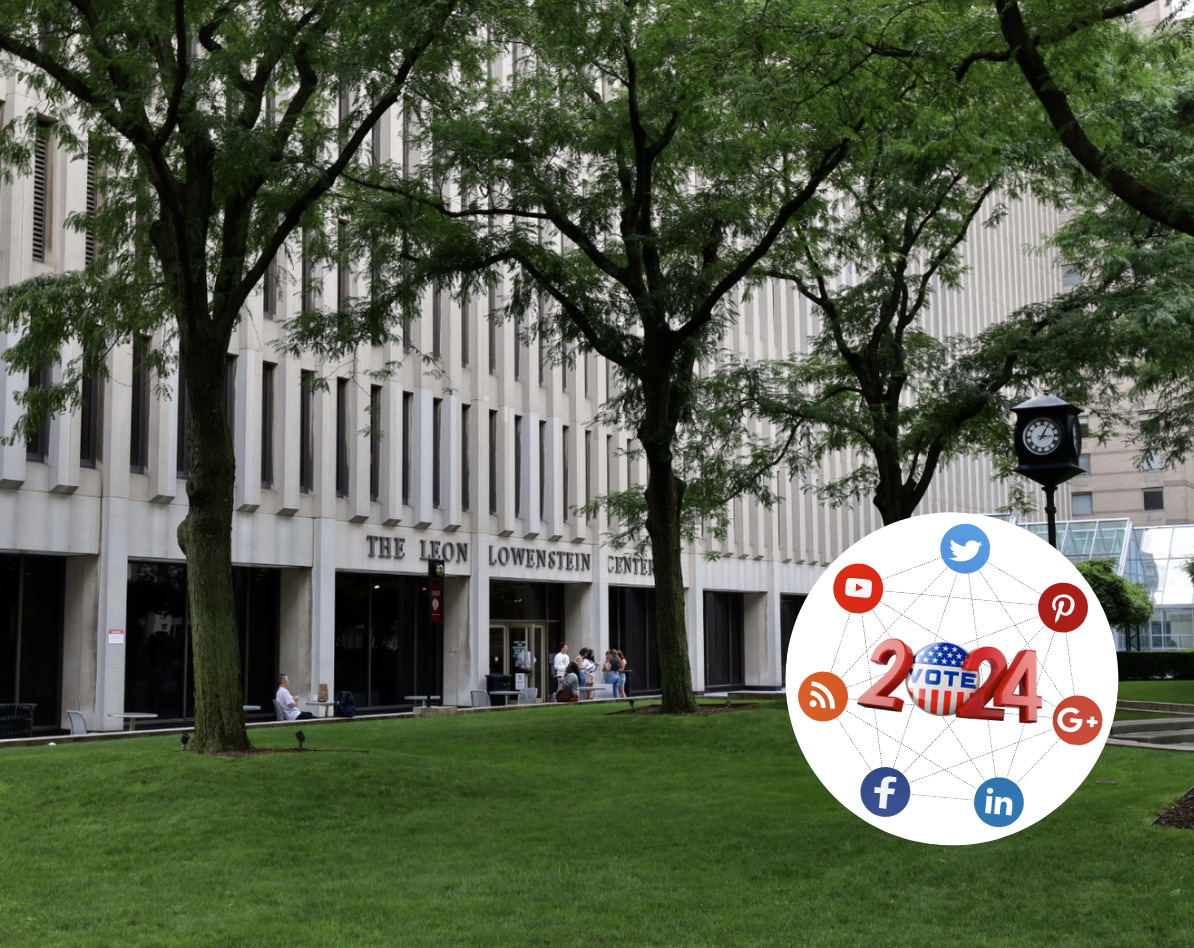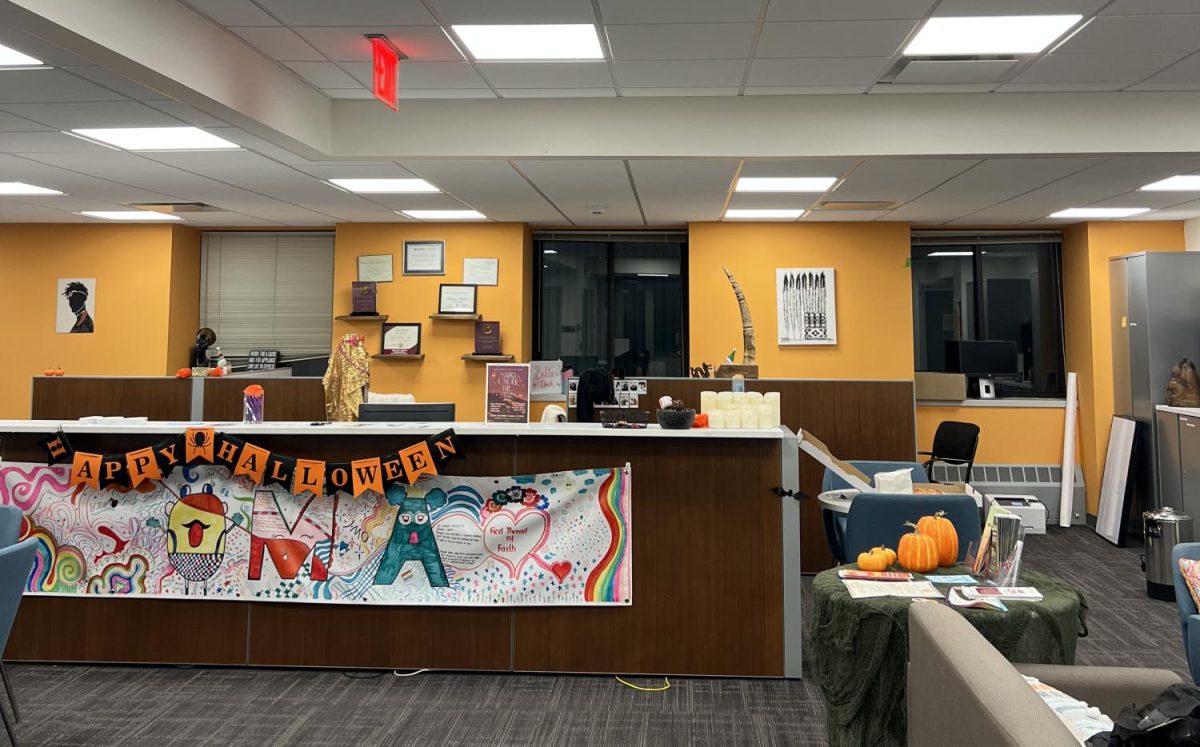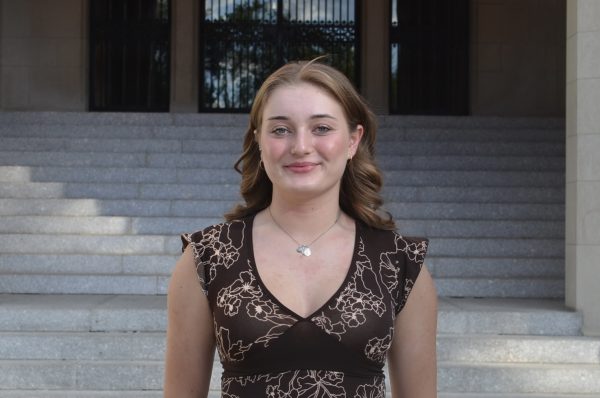The Graduate School of Social Service (GSS) at Fordham University Lincoln Center hosted a panel discussion on the role of the media in 2024 election campaigns on Wednesday, Oct. 30. In attendance were moderator Micah L. Sifry and panelists Dr. Kaia Shivers, Malia Fisher and Kyle Tharp. Shivers is a professor in liberal studies at New York University, Fisher is CEO and founder of Vocal Media, a media company that works with influencers to work on social media movements, and Tharp is a writer behind For What It’s Worth, a news platform that tracks trends in elections.
The panel focused heavily on the progression of media importance in campaigns, discussing several unique platforms, such as TikTok, that have been used in different ways to past campaign strategies. The talk began with Shivers, who gave an overview of how identity is crucial to media intake. “Media users relied on… a network with people that they knew, and the people that they knew,” Dr. Shivers noted. “And the people that they validated as a reliable source also had several things. They provided information that helped them navigate the crises as well. The people that they saw were valid or reliable sources also engaged with them.”
Shivers also discussed Win With Black Women, a think tank that she had worked with prior to Vice President Kamala Harris’ campaign. Shivers specifically named this group due to the influential work they have done in pushing for Black female leadership, as well as the contemporary usage of identity within social media movements to garner support and spread information.
Following Shivers, Fisher gave insight into the importance of the usage of social media platforms in politics, specifically TikTok. Fisher discussed how her company in particular is aware of the influence of social media platforms. “We really think about this as the TikTok election,” she said. “The discourse and the narrative is sort of built and proliferated across TikTok and then it’s sort of reproduced across other platforms. When we were thinking about what that would mean in terms of the strategy, we wanted to think about winning or owning the TikTok narrative.”
While the increased usage of platforms like TikTok can be beneficial by itself, Fisher claims it is even more powerful with a multi-layered strategy. According to Fisher, there are many different types of creators available to work with. Base creators are people that talk about politics all the time. Cultural creators are makeup, beauty and fashion creators that don’t usually discuss politics on their channels. The last type that Fisher mentioned are called “amplifiers,” who are creators that repost and share content from news and media outlets and edit them to make them more approachable for a platform like TikTok.
Sifry asked the panelists about the role of digital in current election campaigns. “[Campaigns] are seeing how they could harness that energy and that intellectual political creativity in order for it to bolster and bolster them and create more public discourse and get people engaged,” said Shivers.
“TikTok played a very meaningful role, probably more… The conversation starts there,” said Fisher. Tharp brought up the influence social media had on getting Project 2025 details out to the masses. “Some content creators on the left started to put out some social media content being like, ‘Have you guys seen this thing?’” Tharp said. “It’s like this massive PDF, it sucks. They put it out online, and a ton of people started freaking out about it.” By using social media platforms to share politics, Tharp is saying that people who may not have known about this very impactful plan can now not only be informed, but also be impassioned to do something about it.
When asked by the audience about what campaigns are doing to strengthen people’s media literacy, given the amount of distrust and unreliable information circulating, the panelists had a similar answer. “As we’re promoting media literacy, a lot of people are illiterate,” Shivers said. “People are taking things at face value, but they don’t have the literacy skills to research it and fact check it.” Tharp followed this idea, saying, “It goes into a really big conversation about the social media content moderation, fact-checking stuff, because… everyone can be a content creator. Unfortunately, the entire industry has shifted kind of away from content moderation and fact-checking.”
To finish out the conversation, Tharp said, “The most we can do is, like, make sure that our friends and family are getting their information from good places, that we’re sharing factual information.”











































































































































































































